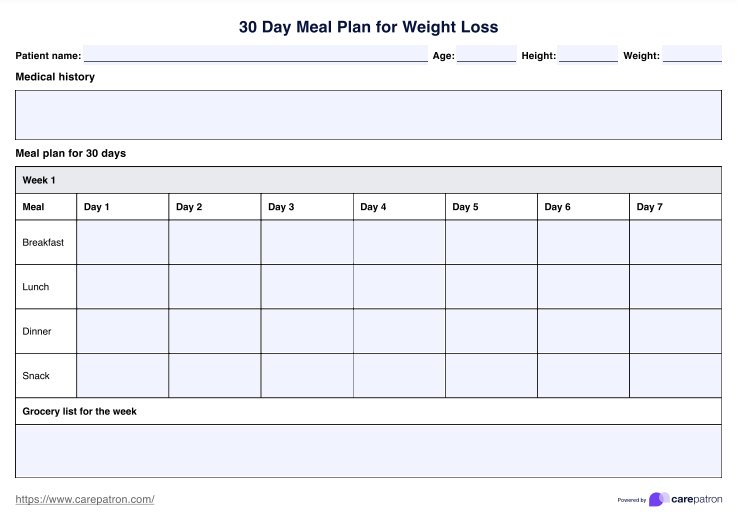To achieve rapid weight loss, individuals should incorporate meal prep healthy foods that are nutrient-dense, such as lean proteins, whole grains, and a variety of fruits and vegetables. These foods help provide the necessary nutrients while keeping caloric intake low, allowing for faster weight loss. Additionally, adding delicious recipes that include healthy fats can enhance meals and promote sustained energy levels.

30 Day Meal Plan for Weight Loss
Get Carepatron's free PDF download of a 30-day weight-loss meal plan. Start your journey towards a healthier lifestyle today!
30 Day Meal Plan for Weight Loss Template
Commonly asked questions
To support lean muscle mass during a weight loss journey, it is essential to maintain a nutrient-dense diet rich in protein sources like chicken, fish, beans, and legumes. Combining these with quality sleep and appropriate meal plans will aid in recovery and muscle development. Focusing on nutrient-dense foods rather than calorie-dense options will enable effective management of excess weight while building strength.
Establishing healthy habits is crucial for tracking weight loss progress. By adhering to a structured meal plan filled with nutrient-dense foods, individuals not only ensure balanced nutrition but also create consistency in their eating patterns. Incorporating regular physical activity and sleep hygiene also supports efforts to lose weight faster, making it easier to assess progress and adjust approaches as needed.
EHR and practice management software
Get started for free
*No credit card required
Free
$0/usd
Unlimited clients
Telehealth
1GB of storage
Client portal text
Automated billing and online payments











